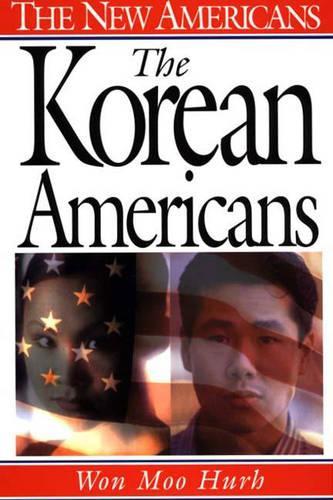
The Korean Americans
(Hardback)
Publishing Details
The Korean Americans
By (Author) Won Moo Hurh
Bloomsbury Publishing PLC
Greenwood Press
30th June 1998
United States
Classifications
Tertiary Education
Non Fiction
Anthropology
Cultural studies
Social and cultural history
Economic history
305.8957073
Physical Properties
Hardback
208
Description
Korean Americans are one of the fastest growing ethnic groups in the United States. Although they share many similar cultural characteristics with other Asian Americans, the Korean Americans are unique in terms of their strong ethnic attachment, extensive participation in Christian churches, heavy involvement in self-employed small businesses, wide geographic dispersion in settlement, and the emergence of the 1.5 generation phenomenon. This book answers the following questions for the student or interested reader: Who are the Korean people Why did they come to the United States How did they adapt to their new country How are they received by the majority of Americans What are their accomplishments, problems, and contributions to American society Other special features include: An extensive coverage on the ethnic background (history, language, religion, customs, and other cultural heritage) of Korean Americans. Current statistical data on Korean immigration to the United States. A comprehensive analysis of socioeconomic characteristics of Korean Americans as compared with those of other minority groups. A succinct analysis of the unique characteristics of Korean Americans. Effective use of personal narratives. In 1970 there were about 70,000 Korean Americansthe number grew tenfold to about 790,000 in 1990. The Korean American population is now estimated at well over a million, and demographic projections indicate that the number will reach about three million by the year 2030. Korean Americans are thus among the new groups of Americans to become another integral part of the American history of cultural pluralism and ethnic diversity. Examined are the most significant areas of Korean American's adaptationeconomic adjustment, sociocultural adaptation, family life, ethnic associations, intergroup relations, and psychological adjustment. In each area of adaptation, positive attainment as well as the problems of adjustment are analyzed in light of current theories and empirical research. The book concludes with a discussion of the unique characteristics of Korean Americans and their impact on society.
Reviews
Hurh's book successfully summarizes important historical, socioeconomic, and cultural information about Korean Americans in an authoritative manner and in an easy-to-read style. Thus it is a valuable and needed addition to current Korean American studies.-ARBA
Students, teachers, councelors, and general readers can learn a lot from this useful resource book. I highly recommend The Korean Americans as a solid and informative introductioin to a population that is both newly emerging and historically rooted in the United States.-Journal of American Ethnic History
This title for high school, college, and adult readers introduces one of the fastest-growing immigrant groups in the United States today.-Multicultural Review
"Hurh's book successfully summarizes important historical, socioeconomic, and cultural information about Korean Americans in an authoritative manner and in an easy-to-read style. Thus it is a valuable and needed addition to current Korean American studies."-ARBA
"This title for high school, college, and adult readers introduces one of the fastest-growing immigrant groups in the United States today."-Multicultural Review
"Students, teachers, councelors, and general readers can learn a lot from this useful resource book. I highly recommend The Korean Americans as a solid and informative introductioin to a population that is both newly emerging and historically rooted in the United States."-Journal of American Ethnic History
Author Bio
WON MOO HURH, born in Korea, is Professor of Sociology at Western Illinois University. His specialization includes race and ethnic relations, social psychology, and comparative sociology. His recent publications include Korean Immigrants in America (1984) and Personaility in Culture and Society (1997). Currently he serves on the Advisory Board for the National Research Center on Asian American Mental Health.
